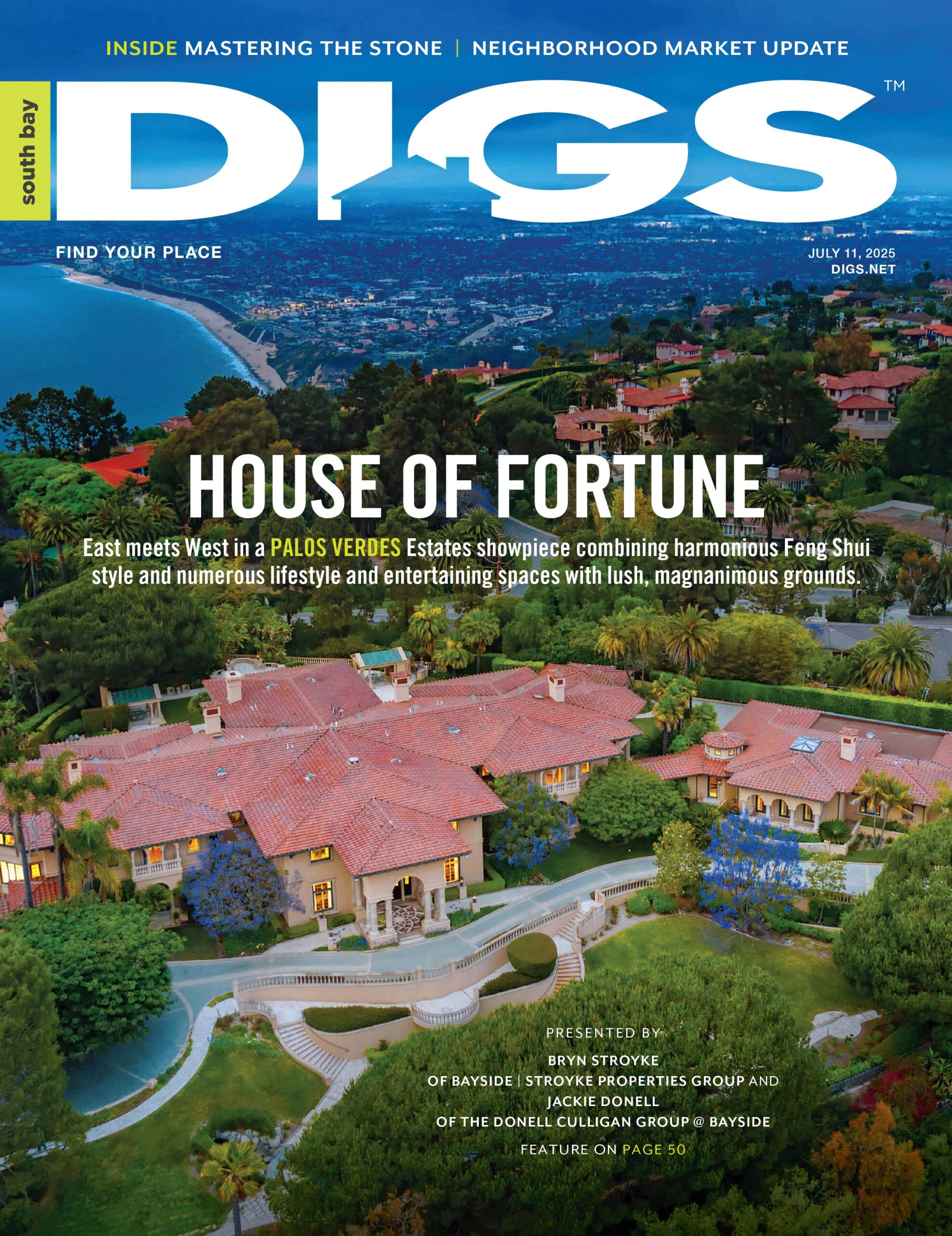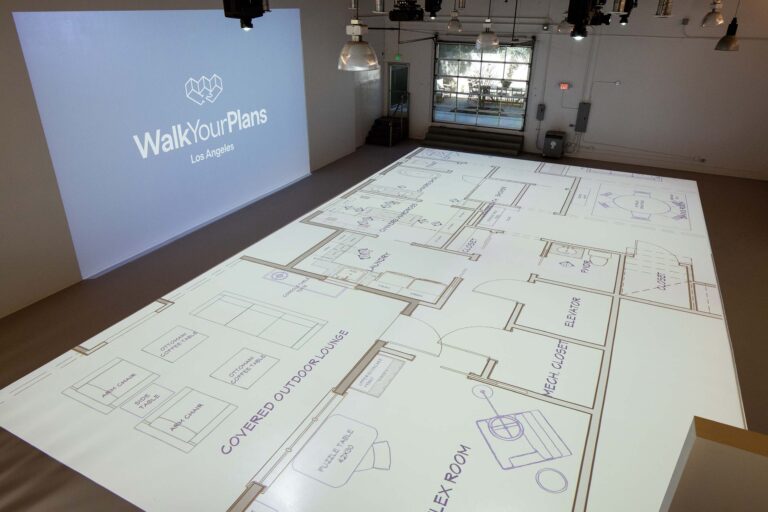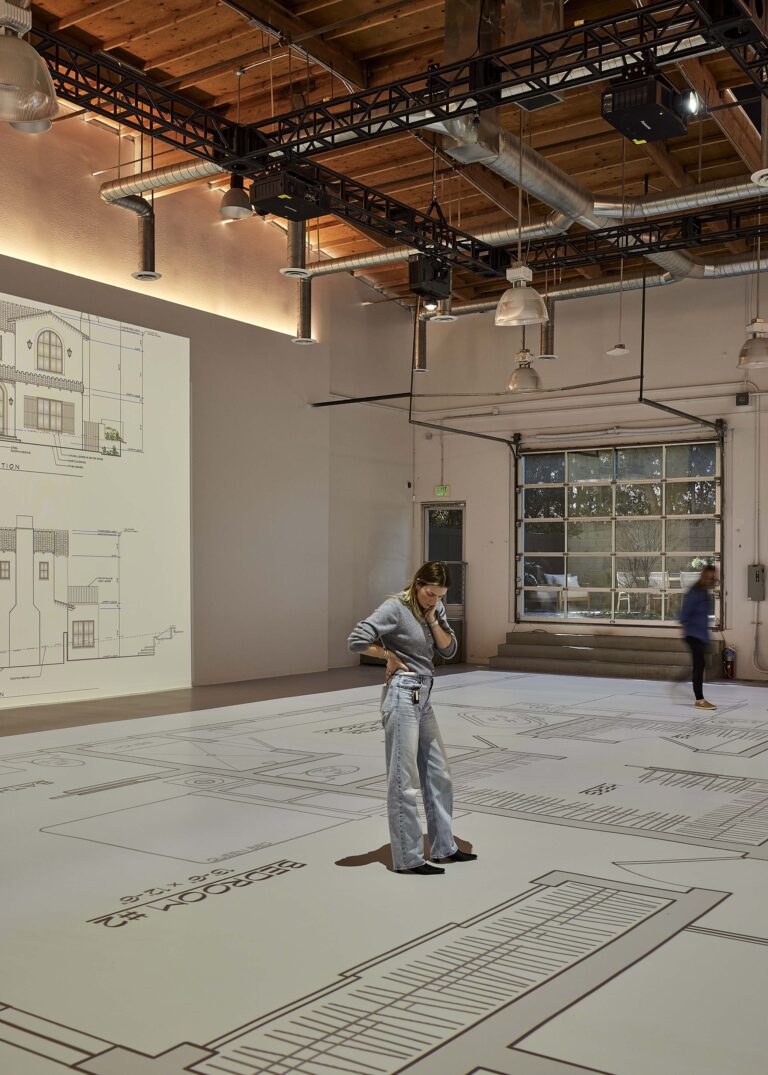Table of Contents
In this Episode
Learn about Ed Kaminsky of the Kaminsky Real Estate Group’s lifelong journey as an entrepreneur, first as a young kid selling stickers in Cleveland Ohio to eventually becoming a jewelry salesman, all of which helped shape his commitment to success. New real estate agents will discover Ed Kaminsky’s secret to success and how to trust the process and gain traction in your business in the first six months. Please share your thoughts on this episode and hope you enjoy it!
Top Quotes
I grew up in Cleveland, Ohio. I was there until I was 18 years old. I grew up in a small town, pretty measly beginnings to be honest with you. I always looked at what other great people in this world were doing and thought I should be a part of that group.
Tweet
For me, it’s not what I do during the first eight hours, what I do with the extra two or three hours after that, that elevates me too. The ability to provide more service to my clients, find more clients, hone my skills, everything else that I need to do, I’m doing with that extra time.
Tweet
Just because you have a real estate license doesn’t mean it’s going to happen. It’s no different than a driver’s license…If you give a 16-year-old a driver’s license, who’s had four hours of driving experience, they’re not as good as a race car driver who’s been racing cars.
Tweet
Episode Resources
Follow Ed Kaminsky and the Kaminsky Real Estate Group
Follow along with Ed Kaminsky over at ItzSold.com
Full Episode Transcript
Ed Kaminsky – DIGS Influencers Podcast
Ed Kaminsky: [00:00:00] It took me a while to kind of really get anything going, so it’s six months in before I really found someone ready to go that was willing to work with me who was green as they come and I sold that house, I had a $3,000 check equip my job. And then full time in real estate. I sold 17 houses my first year.
Warren Dow: [00:00:36] Welcome to DIGS Influencer Podcast, the Titans of Real Estate. The show that provides direct access to the real estate industry’s top movers and shakers is they share invaluable insight on how to best navigate and succeed in any market. I’m your host, Warren Dow, founder and CEO of m3 media and Publisher of DIGS magazine.
[00:00:59] In this episode, Ed Kaminsky. [00:01:09] Thank you to our show sponsor bow concept. So allow me to introduce our distinguished guest Ed Kaminsky to dig studio. Welcome ed.Ed Kaminsky: [00:01:21] Thanks Warren. Glad to be here.
Warren Dow: [00:01:24] So, Ed, you had a, a ranking of very impressive ranking for 2018 you were ranked number 85 top teams by transaction volume, by real trends. And you did a whopping $198 million in volume.
Ed Kaminsky: [00:01:41] Yeah, we did about 200 million in volume last year, which I guess puts us there. And, um, we’re excited to have helped that many people get their homes sold or, or find new homes. And, but I also see there’s 84 people ahead of me that I need to be, uh, just increasing what we do to see if we can climb that ladder even further.
Warren Dow: [00:02:04] And you’ve been on that list for quite some time. You’ve been in the top 100 for,
Ed Kaminsky: [00:02:07] yeah, we, we’ve been on that, uh, topless. You know, w used to be on the top individual lists. We’ve moved it to the team list because I think anybody doing that kind of volume really has some sort of team. So I have to give credit to my team who help us achieve that as well.
Warren Dow: [00:02:22] So let’s give the audience a little bit, so some of your backstory, I’m starting with, you know, where did you grow up.
Ed Kaminsky: [00:02:30] Yeah. I grew up in Cleveland, Ohio. I was there until, uh, I was 18 years old. But, uh, yeah, I went, uh, grew up in a small town, uh, pretty measly beginnings, to be honest with you. And always looked at what other great people in this world were doing and thought I should be a part of that group.
Warren Dow: [00:02:52] So what were, what were some of your interests when you were like, uh, in your youth or a young adult?
Ed Kaminsky: [00:02:59] You know, honestly, because I didn’t have anything, I was always trying to figure out how to get something right. So from a young age, I think the first thing I ever sold was some. Stickers I found in a dumpster, just the thread, a whole brand new box of stickers, and I was like, what a waste.
[00:03:19] I as I could sell these things. So I took the box home on my bike and they said Kibbe on it. I’ll never forget it as a like a oval red sticker and said, K, I B. And below it said cash is best. So I thought, Hmm, maybe they misspelled it. It should’ve been CIB or whatever, and that’s where they threw him out. [00:03:40] Nonetheless, I started selling them for a nickel a piece in school till I get yelled at by the teacher and. But honestly, within 90 days of picking up that box, I started seeing stickers all over the state of Ohio on the back of cars, and I knew I was, I was on to something.Warren Dow: [00:03:55] Yeah,
Ed Kaminsky: [00:03:56] that’s cool. That’s at seven years old.
Warren Dow: [00:03:59] So you were quite enterprising even back then. So what did you do before you got into real estate? Like some of the things you did jobs and.
Ed Kaminsky: [00:04:08] You know, I had the usual teenager jobs and mowing lawns and working at a fast food restaurant and working at a grocery store, you know, just to get some extra money as a kid growing up.
[00:04:17] And then enough to actually pay for myself to get through really what was a trade school. I got into the jewelry business. So I wanted to get out to California where the school was. Uh, so I had to raise enough money as a kid to do it because my parents weren’t able to provide. And. I did that and I came out to California, uh, discovered it, discovered Santa Monica, and went to school, got my degree in geology, and went into the jewelry industry for the beginning of my career. [00:04:50] And I actually went to Houston for a couple of years after I graduated because my father was there at the time. And so I, you know, kind of had my first real job in Houston as an adult, but. Learned, I liked California better. And after a couple of years later, you just got my car, sent out a couple hundred resumes I picked up, uh, you know, back then we used phone books, got those at the library. [00:05:17] So I figured out where, where do I find all the jewelry stores in California and have the internet. So I just mailed out hundreds of resumes to California, then got in my car and drove out and then went to interview with a bunch of places and got a job. So that’s how I ended up in California at a pretty young age with a three month old child in tow.Warren Dow: [00:05:38] Right. So it’s, speaking of phone books, it’s funny, that was the phone book was my best friend back in the day. I sold insurance is my first job. And uh, literally it’s true what they save on insurance. They say, here’s your desk, here’s a pen, here’s a phone book, and there’s a phone people. And literally, okay.
[00:05:59] And you, you, you know, you dial on you and you, it’s, it’s rough. But it’s funny how, uh, you know, but similar to sort of my story, I’m sure. Like what, what impact or what did you learn from the jewelry. Side of things that you were able to translate or take with you?Ed Kaminsky: [00:06:16] You know, there was no question, a jewelry that really what I was involved in there was understanding sales and customer service.
[00:06:24] That was really the biggest thing I learned in that industry, other than how to, you know, know if it’s a diamond or not a diamond and how valuable it is. But I was learning how to succeed in business. Uh, I saw the company I was with grow very quickly. And then go into bankruptcy at some point, right? So I saw how growing pains can affect a business. [00:06:44] So I looked at a lot of different things. I was always paying attention to ownership and management and trying to understand how things were done. And then, you know, they promoted me to management at a very young age. I was managing people twice my age, and one of those, you know, employees was going to the real estate. [00:07:02] Course, and I still really honestly wasn’t making a ton of money and I was working a lot of hours. I was working retail retail stores close at nine o’clock if you’re in the jewelry business, you’ve got to put it all away at nine o’clock which means it takes you another 20 or 30 minutes and you’re not either until nine 30 so to me, it shaped me wrong or right to believe the Workday ends at 9:00 PM. [00:07:27] Where everyone else’s trains, it ends at five so when I switched into real estate, which I did, I always noticed around six o’clock everyone was leaving. Where are they going?Warren Dow: [00:07:37] You had an advantage. They wanted
Ed Kaminsky: [00:07:39] three more hours left in the day. So I just grind it out for another three hours on the phone, you know, making calls and trying to make things happen.
[00:07:47] And I picked up that habit, good or bad, but I find that, you know, to succeed. For me, it’s not what I do during the first eight hours, what I do with the extra two or three hours after that, that elevates me too. The ability to provide more service to my clients, find more clients, hone my skills, everything else that I need to do, I’m doing with those extra time.Warren Dow: [00:08:13] So let me take you back real quick. So why did you get into real estate? What was the. Sort of the turning point that you said, you know, was it just sort of, I’m going to try this or
Ed Kaminsky: [00:08:21] was that one? Honestly, I got my real estate license because I want to know about real estate, wasn’t to get a job in it. But what I found interesting, which was the opposite of phone book situation, was I kept getting letters in the mail.
[00:08:34] People offer me jobs and I didn’t even send out any resumes and what the heck’s going on here? So I literally just started talking to all these people are offering me jobs and. I realized as you learn about this business when you’re new, is they weren’t offering you a job as much as they were asking you to give them money to work for them. [00:08:58] This was their opportunity to grow their company andWarren Dow: [00:09:00] much like the insurance business.
Ed Kaminsky: [00:09:03] Yes. So they get into the real estate business. You have to spend money to spend money to be at the office, has to spend money to market. You have to spend, spend, spend. And so. The bottom line was I was going to try it out and I started, you know, in jewelry, I was either working nine to five, uh, or I was working 12 to nine in those shifts.
[00:09:23] So I would take those extra three hours. If I was on the nine to five shift, I’d go grab dinner and I’d work from six to nine in real estate. And if I was on the, the one to nine shift is what it was. I go in the real estate office at nine and work till noon, take a lunch break and go in. And so I was working in these different three hour increments and then my days off and in real estate, trying to figure it out, learn what it was. [00:09:51] And I sold a house one day.Warren Dow: [00:09:52] So tell me about that first sale,
Ed Kaminsky: [00:09:54] huh? I won’t forget it because when I got in the business, like your insurance phone book story, I said, I didn’t really understand real estate. So I said, okay, I’m here. I’m day one. I’m sitting in the real estate office. It was on PCH and Avenue lead down in South Redondo beach, and I remember seeing her saying, okay, I’m ready.
[00:10:16] Where’s the customers? I’m like, waiting for him to walk in the door. Like, I’m ready to go. Let’s go.Warren Dow: [00:10:23] This is retail where, where the buyers,
Ed Kaminsky: [00:10:27] so the manager comes over, is that, what are you doing? I said, I’m, I’m waiting. Waiting for what my customers is. There are no customers. You got to go get them yourself.
[00:10:39] I go, what are you talking about? So he’s, you know, he said, you’ve got to go out and knock doors. So I went and knocked doors and. You know, I chose Redondo beach as a place to knock and it took me a while to kind of really get anything going, but I’ll never forget. I walked by this one house and I, I walked past it cause it didn’t have a driveway. [00:10:59] It didn’t have a sidewalk. It was just like this little miniature house in the back of the lot. And it just looked a little scary to be honest with you. So I skipped it. But then I started thinking, Hmm, why did I skip it? Should I skip it? And I went back and I knocked on the door and a young woman answers the door and said, hi, I’m ed with century 21 where I was at the time. [00:11:24] I said, do you want to sell your house? She goes, Oh, you want to talk to my husband here? And she hands me a phone, hands me her phone. I go, hello. And I was used to cold calling anyway, so I was pretty comfortable on the phone. So does Edward Sichuan, do you want to sell your house? He says, yeah, I do. Oh, good.Warren Dow: [00:11:41] This is easy. One for one, a diamond in the rough, but it
Ed Kaminsky: [00:11:44] wasn’t one for one. That was six months of pounding the pavement before I sold my first house. So at six months in before I really found someone ready to go that was willing to work with me, who was green as they come. And I sold that house and as soon as I closed it, which at the time I thought was a big closing, I got $3,000
Warren Dow: [00:12:03] what was the price?
[00:12:04] The home price? 200 201 90Ed Kaminsky: [00:12:07] yeah,
Warren Dow: [00:12:07] one 90 so you got a check for 3000
Ed Kaminsky: [00:12:09] yeah, six came to the brokerage. I got half, which was three grand. And. I had a $3,000 check, and it was in December, and in the jewelry business, December was busy because of the holidays. And I got another 3000 check for commissions. I had $6,000 to my name.
[00:12:26] I said, Oh, I could live for six months on this. So I quit. My job went full time in real estate, and that first full year, which was two, uh, 2000 it was 1988 I sold 17 houses my first year, which was. Maybe triple pressing income, what I made in the jewelry business and was on my way. I got a taste of it. I had some success, but I worked my butt off, I think, harder than anybody in that office, and I think I still continue with those same habits today.Warren Dow: [00:12:58] That’s great. So, so that was your first sale, right? One 9,200 what? What was your biggest sale? What’s your biggest sale.
Ed Kaminsky: [00:13:07] Well, I sold a home last week for 17 million. I represented both sides, so that was, I guess it’s like for most people, a $34 million sale. So that was pretty good.
Warren Dow: [00:13:19] That’s nice.
Ed Kaminsky: [00:13:19] Yeah.
Warren Dow: [00:13:21] And what was that?
[00:13:21] Was that your biggest commission? Check your single biggest commission check anything.Ed Kaminsky: [00:13:24] You know, I launched a company years ago called premier States auction company, where we use the auction process to sell. Very unique homes across the globe. And we’ve had some really big sales within that company that have been significant and very large commission checks, you know, split amongst the team and the company.
[00:13:47] So I would say it’s, you know, equivalent to some of those deals we have done there.Warren Dow: [00:13:53] So that, that brings me to a point, like your, your business model has evolved going from the and like, now you’ve got a very unique. Model that you built with, you know, you talk about premier, but you have sports star relocation.
[00:14:09] Um, you’ve got a group now, the team you, you represent different segments and different, you know, um,Ed Kaminsky: [00:14:15] do we, I mean, we, we are, we have evolved into a really dynamic, you know, team of . Highly talented experts that are highly effective at two things. I mean, our customers want two things. One, they want to find their dream home.
[00:14:39] They want to know they’re paying the right price, and they want to find things that maybe others cans. And we have to have the skill sets and ability to do that, right? And so being able to dig out inventory that’s not in a market is important to them. Guiding them on whether it’s a good value, a good location, can they sell it later down the road is important to them. [00:15:03] So that becomes critical. But probably more importantly is our seller clients where they’ve got unique properties, or are they going to have the run of the mill property? It really doesn’t matter. We cover any, we still cover, you know, very affordable properties that are. Today’s market to $500,000 to, you know, $17 million beach front homes and everything in between. [00:15:29] And now I want the same thing. They want as much money as they can get. They want as little headaches as possible and they, they want to know that it’s going to happen within a reasonableWarren Dow: [00:15:43] timeframe, less time, less stress, more money. And rule of thirds.
Ed Kaminsky: [00:15:48] Yeah, and just because you have a real estate license doesn’t mean it’s going to happen.
[00:15:54] It’s no different than a driver’s license, to be honest with you. You know, if, if you give a a 16 year old a driver’s license, who’s had four hours of driving experience, they’re not as good as a race car driver who’s been racing cars. For 18 years, they spelt still have a driver’s license, but there’s a big difference when it comes from the skillsets that exist between us as brokers.Warren Dow: [00:16:21] Let me ask you this. I want to take, take you back to real quick again, because it didn’t, Raj, you work there with you as well
Ed Kaminsky: [00:16:27] at that time said, yeah, he’s a big inspiration for me. When I started, he was there. He had a couple of years on me. And, uh, we worked together for a lot of years.
Warren Dow: [00:16:38] So, and the reason I bring this up is because as you know, that you know that the digs model is all built around the 80 20 rule, right?
[00:16:46] 20% of the agents in this case do 80% of the business and hyperlocal luxury, you know, it might be 85, 15 or 90 10. Correct. So we focus on. The 10 the 15 to partner with and it sounds like, or, or I should ask you, did you find that when you started and you were young and like, okay, who are the players? Who are the 10 I want to, I want to hang with those guys to kind of try toEd Kaminsky: [00:17:14] try to
Warren Dow: [00:17:15] get as much information or learn or,
Ed Kaminsky: [00:17:17] you know what, I, I, I recognized pretty quickly who the leaders were and.
[00:17:23] Honestly, I became one of them pretty quickly in, in the realm of, of volume of sales. But there were people always looked up to that were, had a headstart and you learn from them. You see what they’re doing. But I also look beyond our walls of the South Bay bubble cause there’s a lot of great successful people in this industry. [00:17:46] That you can learn from both locally. Here’s a lot of great agents in the South Bay that do, everybody does their business a little bit differently. And I think some of them have really great skills and I pay attention and there’s a lot of reasons outside of our marketplace to have incredible skills in a lot of different ways from the way they, you know, service their clients, get the job done, build their business. [00:18:14] And so I’m constantly seeking out the leaders in the real estate business, in the business world, and trying to figure out what, what happens. I mean, I’m in what’s called a mastermind group, and we made it a, one of our tasks this month to interview somebody. That is outside of the, in the real estate industry that has had immense success and we, we tried to put a minimum net worth value of them of having $250 million net worth or higher to include them on the interview list. [00:18:54] And so you learn such great things about. So many different ways of of life and business and everything else from, from people.Warren Dow: [00:19:02] Yeah. That’s awesome. That’s awesome. So who did you end up interviewing? Or have you interviewed this person? Yeah.
Ed Kaminsky: [00:19:08] Yeah. I can’t say I know their net worth, so I don’t want to say that.
[00:19:14] I interviewed bill Bloomfield and he had a lot of different successes in. A coin operated laundry services to real estate to today. His passion is politics. So very interesting perspective. But here, here’s what I found. The con, you know, congruency amongst most of these leaders in business is because of my, my focus of the conversation was. [00:19:46] What do we do to make sure our businesses surviving or growing or being disrupted or anything else? And there was no question. It was amongst every single one said the same thing. It’s your people. It’s the people you hire. It’s the people you work with. It’s just strength in the quality of the people that you put in your workplace that is going to decide whether you’re going to grow or you’re not going to grow. [00:20:14] It’s number one by far. It was hands down, uh, an equal answer across all industries.Warren Dow: [00:20:21] Yeah. I’m, I’m a voracious reader of business books and marketing leaders and leaders, and it’s, I totally understand that
Ed Kaminsky: [00:20:30] point. I heard a great line. It was some of the most successful people that have built amazing things, did not come from their own industry.
[00:20:42] Right? So if you look at Elon Musk, who built the Tesla, you didn’t come from what Ford or Chevy or any of these, right? And so it was very interesting that the, the greatest people in business didn’t come from that business. And the other thing I found very interesting was trying to find out from your customer base, what’s important is not always the right answer. [00:21:11] As stated by Mr. Ford, who stated, if I asked the people of my time what they really wanted, they would have told me they wanted a faster horse.Warren Dow: [00:21:25] Yeah, I’ve heard that actually. Yeah, that’s great. Looking for a personal stylist for your home. Check out Bo concept. One of their design consultants can help you make the most out of your space.
[00:21:37] No request is too big or small for living, dining, sleeping home office and outdoor spaces, and check out their Southern California showrooms in orange County, in Costa Mesa, and also in Los Angeles on LaBrea. For more information, visit Beau concept of Bo concept.com email info@beauconcept.la. No, it’s kind of like what Steve jobs said too. [00:21:59] Like, you know, people don’t know what they want until you show it to them. Right. You know, he invented one of the greatest geniuses of our time. Right? Sure.Ed Kaminsky: [00:22:07] Um,
Warren Dow: [00:22:07] yeah. And they, and they, you know, so there’s, it’s amazing. I’m, I’m always, you know, inspired and, and sort of rejuvenated by like listening and trying to sponge knowledge from people in other industries.
[00:22:22] And right. And what of what, you know, great leaders have done. SoEd Kaminsky: [00:22:26] you continue to learn how little, you know.
Warren Dow: [00:22:28] No, totally. Yeah, absolutely. And that’s sort of the best position I find. Like, you know, not necessarily being fearful, but being open that, you know, I used to like to say, I was saying like, I always want to be the dumbest guy in the room because if I’m the dumbest guy, that means I’m surrounded by a lot of smart people.
[00:22:46] Right. You know? Or you know, so. That’s sort of the goal. Yeah. And that totally, you know, and be the dumbest guy in the room. Therefore you’re, you’re actually the smartest guy because you just surrounding yourself with, so let’s get some Intel and some insight because how long have you been in this businessEd Kaminsky: [00:23:03] at 31 years.
Warren Dow: [00:23:03] 31 years. So you can only imagine, one can only imagine how much knowledge you have, you know, acquired. In that 31 years, like it’s beyond and it’s 31 years in this market. South Bay, right?
Ed Kaminsky: [00:23:22] Yeah, the whole time.
Warren Dow: [00:23:23] The whole time. So I mean, that’s, you know, three or four real estate cycles. Right,
Ed Kaminsky: [00:23:30] Mark, you know, I’ve been through many ups and downs now, and probably another one around the corner, I’m sure.
Warren Dow: [00:23:36] So this is what you know in, in my travels, you know, there’s on the other side of the coin, people that look at people like you who are, you know, a top performer and they go, Oh, it’s, you know, these guys make all this money and it’s so easy. What do they do? And it’s like, you know, it’s like. It’s beyond hard work.
[00:23:57] And, andEd Kaminsky: [00:23:58] there’s definitely a misconception about, you know, how people see us. I know as agents, uh, looking from the outside in, especially with the admin and the TV shows and everything else that are going on and they’re making 1 million bucks a deal and, you know, they’re just, you know, sell four houses and make $40 billion.
[00:24:21] But. You know, it’s, I think you asked the, the 80 20 rule as the 80% that aren’t making it. How hard they worked their butts off to make nothing. And you know how. Tough. This industry actually isWarren Dow: [00:24:41] on the turn too. Yeah. The churn, you know, there’s over a million licensed agents in the U S
Ed Kaminsky: [00:24:45] over mine. Yeah.
[00:24:46] Again, 1,000,004 or something like that.Warren Dow: [00:24:47] And that drops in cycles by a big factor. It does. You know? So
Ed Kaminsky: [00:24:52] the next cycle will lose 25%. Yeah, yeah. At least.
Warren Dow: [00:24:56] So that’s why I bring it up, cause 31 years in the market. I mean, it’s invaluable, uh, experience and knowledge that you have. So what would be the best advice.
[00:25:05] You would give to a seller todayEd Kaminsky: [00:25:08] to a seller? Okay. Well, first of all, when it comes to selling in a market that’s meeting either a leveling off period, a future drop-off period, you certainly have to be price sensitive. Everyone says that, but you know, it’s important to understand where to price it. And why, you know, why?
[00:25:35] Why is it $5 million? You know, how does the buyers perceive it and what is the potential cost of loss by overpricing it? Are you willing to take that loss? There’s certainly, if we hit a downturn, which no one knows for sure. I can’t say for sure we’re going to hit it. But the amount of money I have seen sellers lose in these downturning markets because they were just stubborn and held on to, I gotta get that price. [00:26:03] I, I need $1 million. It doesn’t matter what you need it, the house is worth what it’s worth. So you have to get ahead of that, that curve that that’s out there. So that’s one thing is pricing. But every little detail that goes into marketing a home and getting it sold prices, a huge factor, but it comes to repairing the home for sale, is it comes to how the home’s gonna be marketed into the marketplace. [00:26:32] What mediums is it going to be out there at? Who’s going to be seeing it? How is the greatness of that home going to be conveyed to the marketplace? And will it attract buyers to that home? So you’ve got to be picking on their broker. You pick, you gotta be. You know, fastidious and what they’re going to do to get the home sold. [00:26:51] You have to make sure your home is presented incredibly well. You know, whether it’s staging it or whatever it is that you need to do to prepare for sell and painting it and everything else. So you just can’t skip any steps if you want to get it sole or maximize price.Warren Dow: [00:27:07] So add, do you think the worst mistake a seller could make is.
[00:27:11] Overpricing is home. Like is, there isEd Kaminsky: [00:27:13] no question that most costly mistake sellers make is overpricing the home. It’s overpricing a home. It’s, you know, but again, I look at three things when it comes to selling a home. I tell people this all the time, it’s, it’s no secret for me, but when homes don’t sell, they’re blaming a lot of things.
[00:27:32] But I always go to things that are in your control as a seller, what is not in your control. Is the marketplace interest rates, the location your homes in, you know, Oh, my agent says it’s on a busy street. Well, you’re not going to change it. It’s audio control. My agents saying it’s not selling because it’s a bad floor plan. [00:27:55] You’re not going to go change the floor plan. Right. What is in your control price? Marketing and the showing condition. Your marketing is controlled by your agent. The price is controlled by you and your agent, and the showing is controlled by you. Those are the three things I focus on.Warren Dow: [00:28:14] So best advice you would give a buyer today.
Ed Kaminsky: [00:28:17] Best advice they give a buyer today. I always say by knowing you’re buying for the longterm. If you’re looking for a one year purchase and you’re going to be out of here in a year, yeah, go with caution. Extreme caution, but by based on the fact that, Hey, can I afford to keep this home for 10 years, no matter what’s going on in my life, I might get relocated.
[00:28:42] I might have a job change, but we are going to see cycles in this marketplace and. You know, everyone’s wondering, Oh, will there be a down cycle? Should I wait? Well, the biggest reason we’re going to see a downturn in prices is because we have another continual uptick in interest rates. So for those that are buying with financing, there’s a high likelihood that buying at a lower price will cost more. [00:29:12] Which doesn’t make sense, right? Cause you can save 10% on your purchase price, but your interest rates go up by 20% it’s actually costing more per month. And a 20% uptick in interest rates right now is not that much. It’s a point.Warren Dow: [00:29:27] So I’m curious if a buyer were to ask you, and I’m sure you get asked this question a variety ways, but like what’s the best buy out there?
[00:29:37] Let’s pick on minute Manhattan beach. You know, Hey, ed, what’s the best buy right now in Manhattan beach? So without answering, I’m going to have, I’m not asking that question specifically to give me TuesdayEd Kaminsky: [00:29:46] and my sign on it. Yeah.
[00:29:50] Warren Dow: [00:29:50] So, uh, no. What I’m asking is like, what in your mind, what criteria, metrics, criteria do you use? [00:29:58] To answer that question,Ed Kaminsky: [00:29:59] 100% okay. I, I’m going to tell you what I like to buy. Not that this is the end all be all, but I like. To think about properties that are what we would consider in a real estate industry, a plus locations, so an a plus location. It can be in any part of a city, but it’s considered, Oh, that’s the favorite block or the best street.
Warren Dow: [00:30:22] It’s the best street.
Ed Kaminsky: [00:30:23] The people. All, everybody wants to live here all the time. And I noticed that in a bad market, a plus locations still easily, Sal. In a great market and make a lot of money. So when it comes down to, you know, it’s, you’ve heard the term, location, location, location, it does mean a lot. But for those that make a lot of money in real estate, it’s timing, timing, timing.
[00:30:50] So, you know, the truth is more money’s made by buying in a, at the end of the down cycle and it moved up a ton, or because they held on through all of those marketsWarren Dow: [00:31:02] by an old Warren Buffet, by an old
Ed Kaminsky: [00:31:03] man. Old home.
Warren Dow: [00:31:05] Yeah. So interesting. So that’s one of the three, you know, rule of thirds that you mentioned before, that you, one of the fixed things, location of your home.
[00:31:13] You know, so, yeah, that makes total sense. So let’s talk a bit about the industry and the market. Again, you’ve been here, been doing this 31 years. What’s the biggest change you, you know, in the industry you’ve seen since you started three decades ago? There’s been no change, right?Ed Kaminsky: [00:31:30] You know, yes and no.
[00:31:32] There’s, there’s a lot that has remained the same, uh, in the industry. But I would say the biggest changes, the, the movement of information that’s available to all consumers, both buyers and sellers, but especially buyers, right? They, they can have a list of every homeless for sale on their phone in a, in a nanoseconds, and they’re armed with a lot of information. [00:31:55] So. You have to in this industry, no more than what is out there. And you know, just because you know what homes are for sale and on what street, sometimes that’s not enough information. You know, even in today’s market, it can be competitive with great houses. When you want to go buy them and you can. Lose your dream home because you didn’t write the offer the right way. [00:32:21] You can put a home in a great location for sale and not sell because you presented it wrong. You priced it wrong. So there’s still a lot of great information out there that may not exist. Online that people think they have, that they have to go speak to experts about and find that out. You know, I’ve sold homes for 31 years. [00:32:43] I still don’t know how to draw one. I need an architect to do that.Warren Dow: [00:32:48] You know? Speaking of change, I mean, so we started digs in 2010 and I remember the first time I met you and walk through your door, you were a cold call. You were basically one degree away from the phone book. You know, I knew who you were before, but where I went to one of your brokers and you weren’t there, where were you in?
[00:33:07] And I said, where’s ed? They said, always at the office. So I said, Oh, I know he’s there. I’m going there. So I went to go see you and, and I remember how impressed I was just, you know, seeing all these celebrities that you had represented, and you know, John Elway and all these are these, these photographs, and it was amazing. [00:33:26] But. You know, I was thinking to my question like, just how much the industry has changed since we first met 10 years ago. You know, with the disruption in industry and you have this whole, you know, I buyer phenomenon and direct to consumer and you know, all the consolidation, right? I mean, look at Shorewood is no longer here. [00:33:46] All the, even locally, how much this has been disrupted. South Bay brokers, you know, is mr Southerby’s. There was no strand Hill. Christie’s now there, strand Hill, Christie’s or Shorewood there. You know, it’s like, that’s just on the brokerage level. But you know, in terms of, you know, compass is now a huge, you know, going public company in different things. [00:34:05] So what’s your view in terms of like that disruption, how is, how is that affecting you personally?Ed Kaminsky: [00:34:13] You know, I try to stay ahead of that, to be honest with you. I’m, you see today that there is more demand from. Consumers of what they want in service, what they want and information. And I think in order to provide the proper amount of marketing and information and concierge level of services that are expected today, you do have to team up.
[00:34:43] Honestly. You know, it’s, it’s hard to run a one man show anymore and be everywhere that your clients need you to be and, and provide the marketing that needs to get done for, for certain special properties and those types of things. So that’s a big change in the industry that you see real estate moving towards is, you know, meeting the demands of today’s clients.Warren Dow: [00:35:09] Where do you see this, this eye buyer thing going though? Exactly like, you know, the direct to consumer? Do you see that? Of course the discount commission model is,
Ed Kaminsky: [00:35:18] I don’t know. Listen, every time I see these, these ideas pop up, they seem to fall to the wayside over time. I’m, right now, I’m picking up, uh, messes left by these bloody brick companies or whatever they’re called out there and had listings that are just.
[00:35:34] The sellers are frustrated and failing and the buyer processes horrible. So I don’t know, does someone figure out, uh, a new way of doing it that, that really works and is effective? I haven’t seen it yet. I see a lot of flaws in, in the, the process out there. I see a lot of efficiencies out there that can be improved though. [00:35:57] You know, just from the, the lending process, it seems to take forever and the escrow process and everything else that we deal with. I mean, why, why do you need 30 days of my house? I can’t. You buy in three days,Warren Dow: [00:36:08] right? Yeah. That’s where tech, why does four
Ed Kaminsky: [00:36:10] hours? Why does it take four hours to buy a car? Why can’t I just go in and buy it and 14 minutes?
[00:36:15] Right? Yeah. So there’s, there’s always a fission sees. I think that can be improved. I’m open to them. I’m ready for them. I just don’t think I’ve seen it on a horizon that the solution yet.Warren Dow: [00:36:28] All right, so let’s, let’s close out with some things people might not necessarily know about you. Ed , what’s your favorite sport?
Ed Kaminsky: [00:36:36] You know, I, I’ve, I love football, but I am from Cleveland. It’s been a challenge. We have a good year this year, fun to watch Baker Mayfield. Uh, but I’ve learned to love hockey mainly because these guys are here. They’re in town. Many of them become clients and friends, and to be able to watch a sporting team when you have.
[00:36:58] Somewhat of a personal relationship with somebody that’s out there on the court or on the ice is fun. So that has become really a, an enjoyable sport. But I mean, now it’s October. Right now we’ve got Dodger baseball, which is aWarren Dow: [00:37:14] college football. We go, Paul, we’ve got NBA.
Ed Kaminsky: [00:37:17] You’re starting with hockey. LeBron and his, I don’t know.
[00:37:19] It’s exciting.Warren Dow: [00:37:20] It’s the best same time.
Ed Kaminsky: [00:37:21] Yeah.
Warren Dow: [00:37:22] So I don’t, you’d like to cook.
Ed Kaminsky: [00:37:23] I love to cook. Kind of my escape right.
Warren Dow: [00:37:26] What’s your favorite thing to cook?
Ed Kaminsky: [00:37:28] I like cooking without a recipe. I like looking in the fridge and seeing what I haven’t seen when I can, you know, create from what ingredients I have. It’s my favorite thing to do.
Warren Dow: [00:37:37] So very creative.
Ed Kaminsky: [00:37:39] Yeah.
Warren Dow: [00:37:39] Make it up as you go along
Ed Kaminsky: [00:37:40] a little bit. Sometimes they work, sometimes it doesn’t.
Warren Dow: [00:37:44] So you’ve totally, what’s your favorite, and you talk about change in the industry, like how much has Manhattan beach changed in the last 30 years? I mean. . It’s
Ed Kaminsky: [00:37:54] crazy. Red beaches dramatically changed.
[00:37:57] You know, it’s gone from a little beach town to, you know, attracting, you know. Very successful business people of all kinds and, but it still maintains that great neighborhood, small town feel is the greatest thing about Manhattan beach. If we speak about that specifically, you know, it’s, you still got hometown fair and the lighting of the fireworks and the community comes out and a engaged with each other, and it’s just, it’s a beautiful thing to watch and it’s hard to find that in Los Angeles really is.Warren Dow: [00:38:30] What’s your favorite place to hang like in a South Bay or in Manhattan? Where do you hang in Miami
Ed Kaminsky: [00:38:34] today? There’s no question is as young as I still am. It’s with my, my grandkids. You know, I have two daughters who I love spending time with and one of them’s got two grandkids now, and it’s just, it’s such a pleasure to spend time with them and see them smile.
[00:38:52] And as soon as they stop, I give them backWarren Dow: [00:38:58] already.
Ed Kaminsky: [00:38:59] Warrant. You know, I know you’ve been me with questions, but I think to close out, I’d like to ask you a question since I’ve got the Mike, do you see any industry changes that have been dramatic the last, you know, five or eight years, however long digs has been around that you think is going to affect us as, as brokers.
Warren Dow: [00:39:27] That’s a great question. And boy, could I go on and on? Um, so, you know, as we as always said since day one when we met, you know, we’re in this together, like we exist as a media marketing company for you, for the 80 20 for the 20, you know, um, so as you go, we go. And so I have a very acute focus on what’s happening, you know, outside of the South Bay and what’s happening.
[00:39:54] What the Zillows and the campuses and you know, all the technology and, and you know what, what always brings me back to the focal point is real estate is local. These homes are rooted here. They’re, you know, the community is rooted here. The schools are rooted here, and you know, these big national concerns. [00:40:15] And, and, you know, you can’t really get into that hyper-local and understand it and be that expert right. Um, so this is the sort of the, the moat around the castle, if you will, that, you know, it’s like the last mile with fiber. Right. And what was the hardest part when fiber, right. Like the last mile.Ed Kaminsky: [00:40:32] Yeah.
Warren Dow: [00:40:34] Hyperlocal is the last mile and it’s a tough last mile.
Ed Kaminsky: [00:40:38] So that’s a very good point.
Warren Dow: [00:40:40] And, and I think to displace that, yes, it’s, we’re going to get disrupted. And yes, there’s, there’s, there’s evolution and technology. It’s just a matter of. You know, it, it, it’s going to happen. And it’s not good or bad. It’s, it’s evolution.
Ed Kaminsky: [00:40:53] I can give you a good example of that because I went to New York city recently and we happen to, with Christie’s international real estate, were able to tour for $35 million properties. One was an absolute fixer upper. The other one was the medium fixer-upper. One was beautiful, and then one was like a castle.
[00:41:15] But to be honest with you, I can tell you. Without talking to someone who is hyper-local, if it was worth 35 or 25 or 38 so I think you’d bring up a good, strong point is having that really base of knowledge for every block. And you know, every angle our home can sit is, is critically important.Warren Dow: [00:41:37] And that’s why we always preach it.
[00:41:38] And you’ve heard this from me a million times. It’s like. You know, if you want to be around forever as a top performer and you want to, you want to outlast the disruption and be here, be the last man standing. You’ve got to build a local brand. You got to have a, a brand that’s rooted in this community, centered around the real estate conversation. [00:42:00] So you have your own mode and your reputation proceeds you. And that’s something that is built to last. You know, and, and if you’re continuing to work on that, and this is why, you know, brand has been very passe. It’s, you know, it’s been sort of thrown out 10 years ago is no, it’s, you know, brands are meaningless now. [00:42:18] And now the whole brand thing is coming full circle in all the, you know, the experts in the market. All the branding is branding. It’s, and, you know, cause we don’t, we live in a no trust world now with fake news and internet. And we live in a content surplus. And trust has always been the most important ingredient. [00:42:37] And do relationships. Sure. Then relationships are everything. Um, so without trust or relationship, forget it, and you put local around that. You got it. You know,Ed Kaminsky: [00:42:48] so, well, that being said, I, I’ve enjoyed our partnership together over the years and the fresh thoughts and ideas that you continue to bring to the table and helped me build, uh, our brand for our customers.
[00:43:00] And, uh, it’s been a pleasure working with you and I look forward to continued a successful relationship.Warren Dow: [00:43:07] Likewise, I didn’t thank you for being a partner and, uh, always a pleasure to see you and to. Glean insight into the industry and um, you know, so keep that up. And, uh, okay. So give us your closing thoughts, ed.
Ed Kaminsky: [00:43:23] My closing.is there isn’t one answer for everybody. It doesn’t matter what the market’s doing out there. It doesn’t mean that it is dictating what you should do as a buyer or seller. You have to look at your individual situation. How long are you going to live in a home? What kind of home do you need?
[00:43:39] Why are you buying a home? You know, are you in a terrible rental situation? Don’t ever want to rent again? Why are you selling a home? Is it going to put you in a great. Stress relief situation by selling your house or are you leaving money on the table and you have the luxury of not wanting to leave money on the table when you want to keep it for another five or 10 years? [00:43:58] You’re okay with that. This market does not dictate exactly what to do. No, your personal situation. Sit down with your financial planner, talk to your lender, talk to your spouse and and discuss everything that’s important before making a decision and turn down the noise that’s out there on the radio and a TV in the papers and look at yourself individually. [00:44:20] Ask smart questions, then make a decision.Warren Dow: [00:44:24] That’s great. All right. On that note, I think that’s a terrific, and I think hopefully we’ve, we’ve provided some value to the audience and, uh, we look forward to doing it again soon. And, uh, thanks again for joining us.
Ed Kaminsky: [00:44:37] Yeah, my pleasure.
Warren Dow: [00:44:47] and up this episode. Thank you for tuning in. And we hope you found some value. Please share, subscribe, and leave a review. Find us on iTunes and your favorite podcast provider. Until next time.















